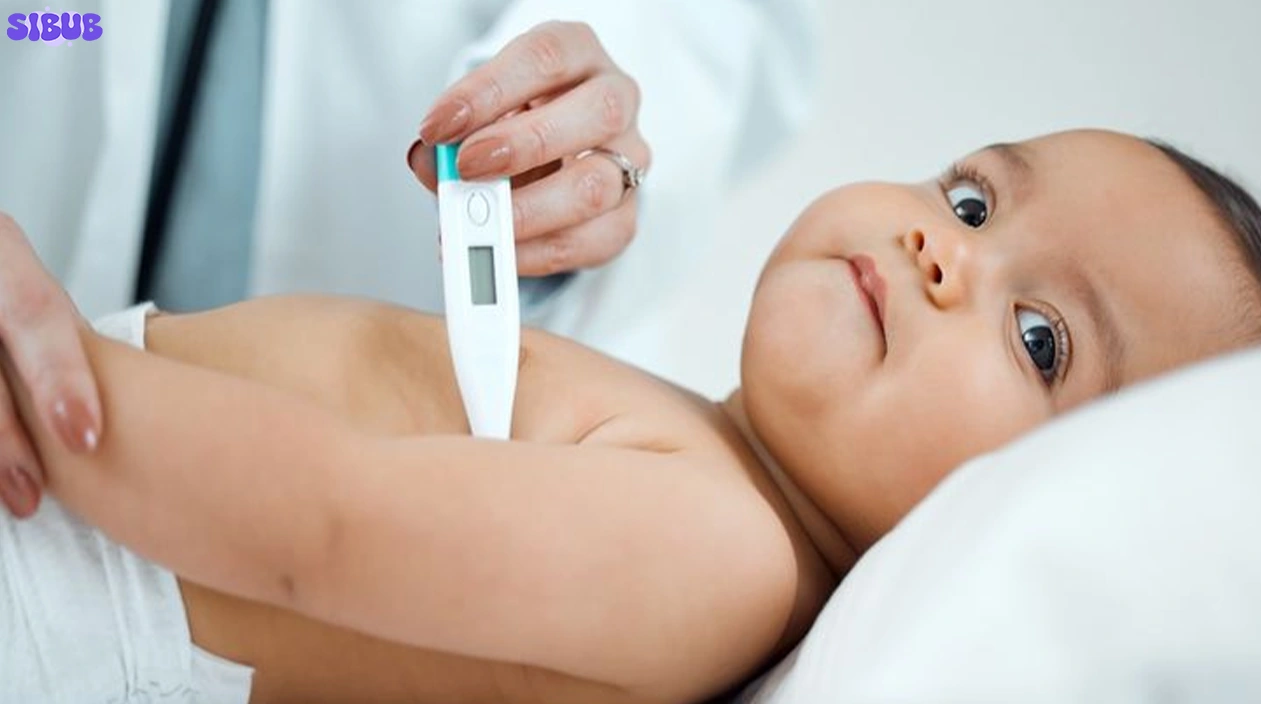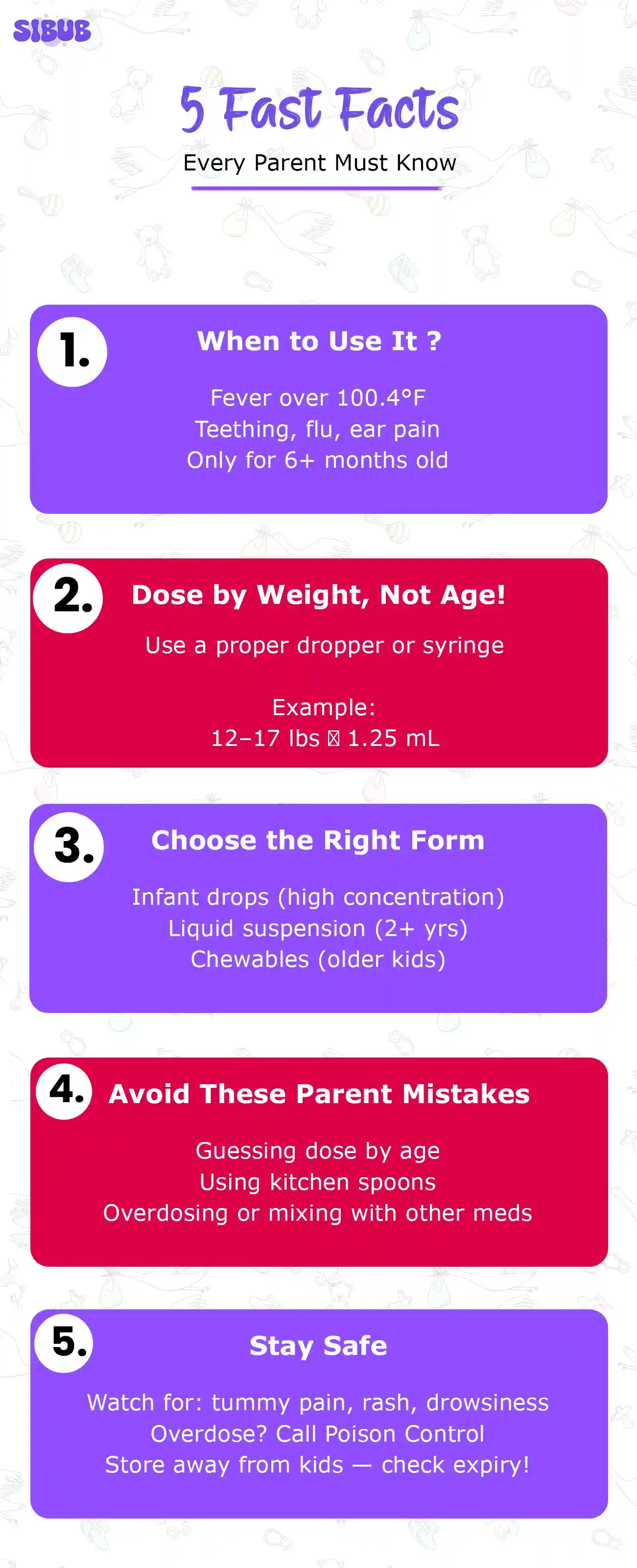“When a child hurts, every minute feels like an hour.”
A parent cannot deny the pain they feel when their child is suffering from a high fever or discomfort. In such scenarios, reaching out for comfort may seem appealing, and in the Motrin ibuprofen for kids case, it is likely reachable easily. Under the commercial name Motrin, Motrin ibuprofen for kids is greatly regarded. Nonetheless, understanding how to understand children’s Motrin dosage is essential.
In this article, we outline the practical aspects of children’s ibuprofen dosing, including action and commonly made errors, as well as calculating dosage by weight. Further, we will analyze issues of timing, which entail determining when, how, and in what order things should be done.
What is Ibuprofen and How Does It Work in Children?
Ibuprofen is a member of a drug class called NSAIDs (nonsteroidal anti-inflammatory drugs). In children, it manages fever, relieves pain, and reduces inflammation. It is mostly used in the treatment of:

- Fever associated with viral or bacterial infections
- Pain associated with teething
- Ear infections
- Sore throat
- Discomfort after vaccination
- Mild trauma or musculoskeletal discomfort
Visit: Explaining Santa: Is Santa Real and How to Break the News Kindly
Since Ibuprofen restrains the synthesis of inflammation and pain-causing prostaglandins, it is highly efficient in pain relief. Compared to acetaminophen, ibuprofen works better for inflammatory pain due to its lasting effects.
When Should You Use Ibuprofen for Kids?
Give your children Motrin when your child:
- Experiencing a fever of 100.4°F or higher.
- Experiencing moderate discomfort from teething, an injury, or the flu.
- Requires pain relief, which lasts for 6–8 hours.
- Is older than 6 months. (Children below 6 months should not take ibuprofen unless prescribed by a medical professional.)
Avoid if your child is dehydrated, has persistent vomiting, or has kidney disease without a doctor’s orders.

Ibuprofen Dosage Based on Weight
| Weight (lbs) | Droppers Dosage (50 mg/1.25 mL) | Syrup Dosage (100 mg/5 mL) | Tablets Dosage (50 mg) |
| 12 – 17 | 1.25 ml | 2.5 ml | — |
| 18 – 23 | 1.875 ml | 3.75 ml | — |
| 24 – 35 | 2.5 mL | 5 mL | 2 tablets |
| 36 – 47 | 3.75 mL | 7.5 mL | 3 tablets |
| 48 – 59 | 5 mL | 10 mL | 4 tablets |
| 60 – 71 | 6.25 mL | 12.5 mL | 5 tablets |
| 72 – 95 | 7.5 mL | 15 mL | 6 tablets |
| 96+ | 10 mL | 20 mL | 8 tablets |
Dosage caution: Recommended 4 doses maximum within 24 hours.
Children’s Motrin Dosage for Infants and Toddlers
Targeted ibuprofen usage demands great caution in infants aged 6 months to 2 years. Motrin dose for infants weighing 12 to 17 lbs is 1.25 mL every 6-8 hours, while those 18 to 23 lbs take 1.875 mL every 6-8 hours.
Always take the dose using the dropper provided. Use concentrated infant drops (50 mg/1.25 mL). In no circumstances should more than four doses be given within a day. Children under 6 months of age should not use ibuprofen without prior instructions from their pediatrician. Always check the medication label before taking it.

Discover: Top Benefits of Summer Camp for Kids
Children’s Ibuprofen: Different Forms
Knowing the specific pediatric liquid formulation is important for safe use:
Infant Drop (50mg/1.25mL)
- Targeted to infants aged 6-23 months
- Includes a dropper for ease of dispensing
- High concentration; check dosage math and confirm accuracy
Children’s Suspension Liquid (100mg/5mL)
- Most appropriate for children aged 2 years and older.
- Available with a dosing cup or syringe.
- The most frequently used version for children’s ibuprofen.
Tablets (50mg)
- Suitable for older children who can safely chew and swallow
- Appropriate for 2+, dependent on development.
An accurate form and measuring tool ensure proper Motrin dosage.
Dosing Frequency and Duration
- Take dosages every 6 to 8 hours as necessary
- In a 24 hour period, do not exceed 4 doses.
- Unless instructed otherwise, do not utilize for more than 3 consecutive days for the purpose of fever reduction.
Explore: Emotions Wheel for Kids: Benefits and How to Use
Children’s Motrin dosage works best when symptoms disrupt play, rest, or comfort.
Every Parent’s Mistake
- Estimating the dosage based on age rather than weight
- Using household spoons rather than proper measuring tools
- Not ensuring that other medicines don’t already contain NSAIDs
- Administering it on an empty stomach which cause ibuprofen stomach discomfort
- Incorrectly timing the combination of ibuprofen and acetaminophen
Pay attention and ensure proper label checks are done when administering ibuprofen for kids.
Learn More: Acetaminophen for Fever and Pain in Children: Safe Dosing and Tips for Parents
Negative Effects and When Not to Use Ibuprofen
Although it is relatively safe, ibuprofen may cause:
- An upset stomach
- Nausea and vomiting
- An allergy (rash or swelling)
- Dizziness and drowsiness
Children should not be given ibuprofen if they have:
- Kidney issues
- A bleeding disorder
- An allergy to NSAIDs (nonsteroidal anti-inflammatory drugs)
Always abide by the dosage instructions of Motrin for children. If side effects occur, discontinue use and seek the advice of a doctor.
What happens if a dose is skipped or overdosing occurs
- Missed dose: Administer when recalled, unless it’s nearly time for the subsequent dose.
- Overdose: Symptoms include feeling sick, throwing up, belly distress, and sleepiness. Immediately call the Poison Control Center or head to the ER.
Store children’s Motrin where small children can’t easily access it.

Storage Conditions and Expiry Date of Children’s Motrin
Children’s Motrin should be stored at room temperature, away from light and moisture. Always ensure the cap is tightly screw and kept out of children’s reach. Freezing of the liquid is also prohibited because it may alter its effectiveness. For each use, the expiration date should be checked to ensure safety. Outdated medicine may reduce pain or fever-relieving effectiveness and increase potential health risks. Proper storage aids in maintaining strength and quality over time.
Final Thoughts: The Relevance of an Accurate Children’s Motrin Dose
For parents, fever and pain are commonplace ailments for children, but treatment calls for extra prudence. Administering the correct children’s Motrin dosage will maximize your child’s comfort during recovery. As always, be sure to select the appropriate formulation, measure the medication accurately, and speak with your pediatrician if any questions arise.
Check this out: Molluscum Contagiosum Treatment for Children
The appropriate use of ibuprofen in children under the age of eleven years is within the confines of their well-being and won’t provide unnecessary risks. A child’s health indeed requires only a little extra effort to sustain
